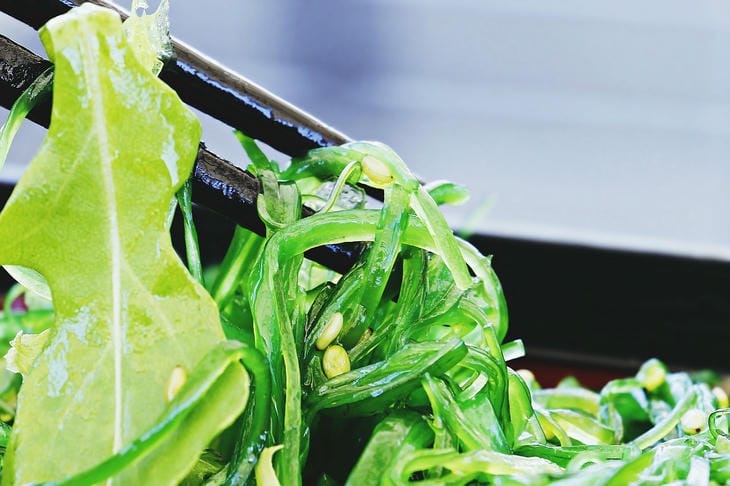Seaweed: What are its benefits and who shouldn't eat it?
Because of its special, unusual taste, seaweed is either loved or sincerely hated.
However, is seaweed really as healthy as we are used to thinking and what does it contain?
What is seaweed
Seaweed is a colloquial name for a salad made from brown seaweed, namely kelp. You can buy this salad dried, frozen or canned.
Before using kelp for the food industry, the algae is thoroughly washed, removing sand and other contaminants, and also treated with special solutions for disinfection.
Prepared seaweed is dried, frozen or preserved depending on its purpose.

Dried kelp is commonly sold as a dietary supplement and can be eaten as a snack, chopped into salads and side dishes, or added to soup.
The salad we are used to is prepared from pickled and canned seaweed, which is mixed with spices and sometimes vegetables.
What are the benefits of seaweed?
Thyroid gland
Thyroid hormones are involved in many processes in the body, from regulating menstrual cycles to controlling body temperature and mood.
Without sufficient iodine, the thyroid gland cannot produce the required amount of hormone, and then the pathological condition of "hypothyroidism" occurs.
You may also develop a "goiter," which is a visible enlargement of the thyroid gland. Kelp is also extremely rich in iodine, so consuming it can help avoid deficiency.
Help with weight loss
Kelp or seaweed is a low-calorie food, with raw seaweed containing only 43 kcal per 100 g. It can help you feel full while staying within your calorie intake.
Seaweed is also thought to have some anti-obesity properties. In particular, animal studies suggest that the substance fucoxanthin may help reduce body fat.
Cardiovascular system
One of the key factors that increases the risk of developing cardiovascular diseases is high cholesterol.
A 2023 meta-analysis of scientific studies found that brown seaweed consumption significantly reduced total cholesterol levels in subjects. Heart disease can also be caused by excessive blood clotting.
Seaweed contains carbohydrates called fucans, which may help prevent blood clotting. In fact, one animal study found that fucans extracted from seaweed prevented blood clotting as effectively as anti-clotting drugs.
Gut Health
The sugar in seaweed helps speed up the growth of so-called "good" bacteria and increase levels of short-lived fatty acids that keep the lining of the gut healthy.
Anti-cancer effect
Early research has shown that fucoidan, a carbohydrate found in brown seaweed including kelp, has anti-cancer properties.
Who shouldn't eat seaweed
The large amount of iodine in seaweed is not useful for everyone. The fact is that daily consumption of over 1100 mcg of iodine can, on the contrary, provoke problems with the thyroid gland, including the same problems that arise with iodine deficiency: goiter, increased TSH levels and hypothyroidism, since excess iodine inhibits hormone synthesis.
It is not without reason that the Japanese consume iodine-rich seaweed together with products that can prevent the thyroid gland from absorbing iodine (broccoli, bok choy). Also, boiling kelp for 15 minutes can destroy almost 99% of iodine.
People who already have thyroid disease should first consult a doctor before using kelp or kelp-based dietary supplements.
Kelp is not recommended for use during breastfeeding or pregnancy. Since seaweed accumulates minerals, there is a risk that kelp may contain heavy metals such as cadmium, mercury, and lead, as well as other toxins.
People suffering from kidney disease should avoid eating seaweed, as the algae contains a lot of potassium and iodine, which can aggravate existing problems.
If you plan to use kelp as a dietary supplement to increase the amount of iodine and iron in your diet, you should first consult with your doctor.
